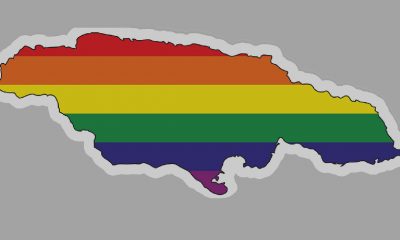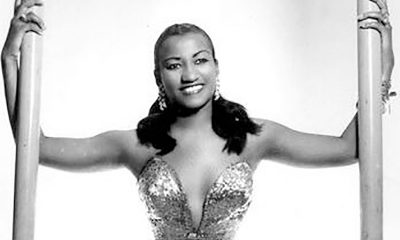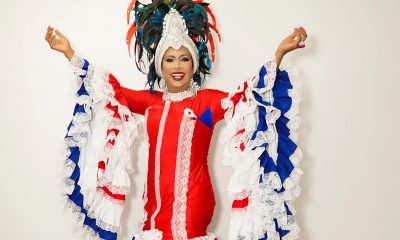Commentary
‘Did this really just happen to me?’
Cuban cell phone was only link to outside world
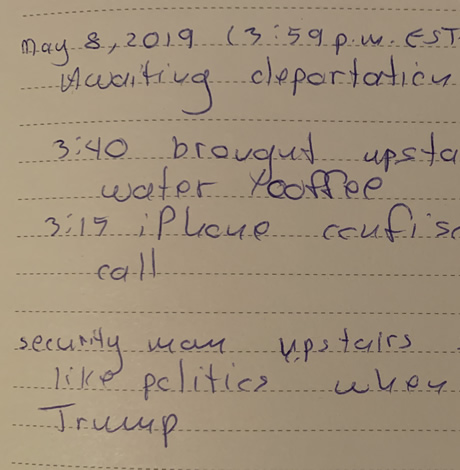
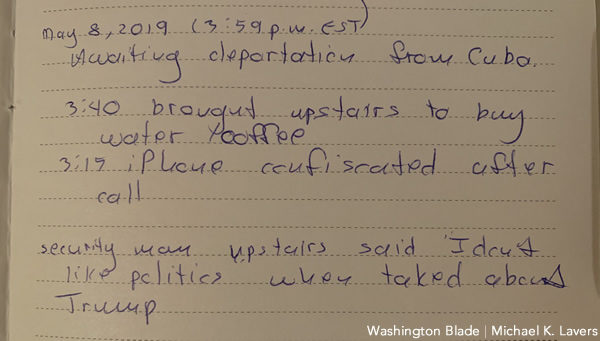
MIAMI BEACH, Fla. — Wednesday was to have been the first day of my seventh trip to Cuba. The country’s government put a quick end to that plan.
My American Airlines flight from Miami landed at Havana’s José Martí International Airport shortly before noon. I was one of the first passengers off the plane.
There were a few dozen people — mostly customs employees — in the large customs hall downstairs when I approached an officer who was sitting in one of the more than a dozen booths. I said “good afternoon” to her in Spanish and handed her my passport and “tourist card” visa that I bought after I purchased my flights last month. She began to enter my information into a computer and after a couple of minutes she told me to stand behind the line at which people wait before they approach the booths.
A woman who I later realized was a customs manager — who subordinates called “la jefa” or “the boss” in Spanish — approached me and asked for my passport and visa. I gave them to her, and then walked over to where Cleve Jones — a San Francisco-based activist who was to have been the grand marshal of a government-approved International Day Against Homophobia, Transphobia and Biphobia march in Havana that was cancelled earlier in the week with little explanation — and two other Americans who were on my flight were waiting for a contact to escort them through customs. The four of us chatted for a few minutes until the customs manager called my name. I walked over to her and a male colleague with whom she was standing asked me three questions: How many times have I been to Cuba? What is my profession? What was the purpose of my trip? I answered each of the three questions and the man then told me I was not allowed to enter the country. I asked him why and the only thing he said was my name was on a list. He directed me to a row of seats near an emergency exit and I sat there with my backpack, carry-on and a plastic bag with things I bought at Miami International Airport before the flight. Someone from Jones’ group asked me what was happening, and I said something to the effect that I was not being allowed into the country. I don’t know if they heard what I said.
I used my iPhone to call my husband in D.C. and text Washington Blade editor Kevin Naff to let them know what was happening. I also used my Cuban cell phone to call a contact in Havana. The person who escorted Jones and the other two Americans through customs arrived a short time later and they left about half an hour after our flight landed. I knew I was going to be on an American Airlines flight to Miami that was scheduled to leave at 7 p.m., but I asked the customs manager to confirm this information and to tell me why the government had refused to allow me to enter the country. She said she didn’t know and apologized to me. She also asked me if I wanted any water or food. I thanked her; but said no because I had a full water bottle, snacks and half a breakfast sandwich from Miami with me. I asked her if I could use the restroom. She said yes and I walked over by myself.
The thought of spending more than six hours in a Cuban airport was dreadful, but I was not overly scared because I had not been formally detained and the customs manager was doing what she could to keep me comfortable. I spent the next couple of hours walking back and forth to the restroom, pacing around the customs hall, using my iPhone’s notes app to write the Blade’s article about what happened and talking to a man from Angola who was not allowed to enter Cuba after he arrived on a flight from Panama. I also called a contact in Havana and told them I was “bored out of my mind.”
A contact in the U.S. called my iPhone at around 3 p.m., and I began to tell them what was happening. The customs manager and the same male colleague who told me I was not allowed to enter Cuba approached me about 15 minutes later and told me I could not use cell phones in the customs hall, even though several of their colleagues were using theirs. The customs manager then told me to turn off my iPhone and give it to her. She then told me she would keep it with my passport and give them back to me before I boarded my flight to Miami.
I felt even more disconnected from the world after they took my iPhone, but I still had my Cuban cell phone. I muted the ringer, placed it into the hat I was wearing and used it to text the contact in Havana with whom I was in contact and to and Maykel González Vivero, publisher of Tremenda Nota, the Blade’s media partner in Cuba. I also took my travel journal out of my backpack and began to write down what was happening. At 3:59 p.m. I wrote “awaiting deportation from Cuba.” I also noted a young male customs employee about 20 minutes earlier walked me upstairs to the departures lounge and allowed me to buy bottles of water and a coffee with Cuban pesos I had from my last trip to the country earlier this year. I wrote in my journal he told me, “I don’t like politics when (we) talked about Trump.” I bought an extra bottle of water for the Angolan man who was sitting next to me downstairs and gave him some of the cookies and dried fruit and nuts I had with me.
The air conditioning was not very strong and it was 90 degrees outside, but I was otherwise comfortable over the next two hours as I waited for my flight back to Miami. At around 6:30 p.m. the customs manager called me over to an elevator. She gave me back my passport and iPhone, handed me my boarding pass and escorted me to the gate. She handed my passport and boarding pass to a gate agent and told a male airport employee to escort me onto the plane. The customs manager said thank you to me as I entered the jet way.
I was the first person to board the plane, which made me feel extremely self-conscious because I was escorted past a group of elderly people in wheelchairs who would have normally boarded well before a 37-year-old man with no health and/or mobility issues. The person who escorted me onto the plane told me before I left customs that American had upgraded me to business class. I sat down in my seat and thought to myself, “Did this really just happen to me?”
I called my husband, Naff and my Havana contact and let them know I was about to leave Cuba. The onboard WiFi allowed me to connect to the Internet, write Facebook and Twitter posts about what happened and text contacts who were able to receive iMessages. I remained on the Internet during the safety demonstration video and take off that a thunderstorm south of the airport made extremely turbulent. The flight landed in Miami shortly after 8 p.m. and I was able to call my mother in New Hampshire and let my relatives know what had happened. A U.S. Customs and Border Protection agent in customs flagged me for a “hard” interview, but it turned out to be nothing more than a simple passport check. I cleared customs in less than 10 minutes and walked downstairs to baggage claim where I retrieved my suitcase that had been damaged. I reserved a rental car, drove to Miami Beach and arrived at a hotel on Collins Avenue I found online shortly after 9:30 p.m.
Coverage of LGBTI issues in Cuba will continue
I first traveled to Cuba in 2015 to cover government-approved IDAHOBiT events. Blade Photo Editor Michael Key and I in 2017 received press visas from the Cuban government that allowed us to cover that year’s IDAHOBiT commemorations in Havana as credentialed journalists. The Cuban government has also allowed me to enter the country with a “tourist card” three times — the most recent time on Feb. 28 — with no questions asked.
I have reported across Cuba over the last four years, from Santiago de Cuba in the east to Pinar del Rio in the west.
I have interviewed pro-government and independent activists and have become friends with many of them. I have interviewed vocal critics of the government in Cuba. I have published photo essays and recorded dozens of videos that document life on the island. I am also all too aware of the Cuban government’s human rights record and its treatment of journalists, regardless of who they may be or the credentials they may have.
Yariel Valdés González, a Blade contributor from Cuba, has asked for asylum in the U.S. because of the persecution he said he faced in his homeland because he is a journalist. The Cuban government blocked access to Tremenda Nota’s website on the island on the eve of the Feb. 24 referendum on a new constitution that once promised to extend marriage rights to same-sex couples. Authorities detained González in October 2016 as he was covering the aftermath of Hurricane Matthew in the city of Baracoa in eastern Cuba and again in September 2017 while reporting on preparations ahead of Hurricane Irma in his hometown of Sagua la Grande in Villa Clara province.
Authorities on Wednesday detained Luz Escobar, a reporter for 14ymedio, a website founded by Yoani Sánchez, a journalist who is a vocal critic of the Cuban government, for several hours after she tried to interview Havana residents who were displaced by a freak tornado that tore through parts of the city on Jan. 27. The contact in Havana with whom I had been speaking from customs told me about Escobar’s arrest after I boarded my flight to Miami. The U.S. Embassy in Havana also tweeted about it.
Notamos que @Luz_Cuba fue liberada. Muy buena noticia pero no deberia haber sido detenida, en primer lugar. #TodosSomosLuz #LibertadDePrensa #Cuba
— Embajada EE.UU. Cuba (@USEmbCuba) May 8, 2019
I tagged Cuban President Miguel Díaz-Canel and other government entities in a Tweet that asks for additional information about why I was prevented from entering the country. I have not received a response, and am not holding my breath for one.
Los funcionarios al Aeropuerto Internacional José Martí no me dieron ninguna explanación sobre la decisión del gobierno cubano de prevenirme de entrar el país. ¿Tienen información que pueden compartir conmigo? @CastroEspinM @DiazCanelB @CubaMINREX @USEmbCuba @EmbaCubaEEUU
— Michael K. Lavers (@mklavers81) May 9, 2019
I know there are increased concerns over an IDAHOBiT march that independent activists have said they plan to hold in Havana on Saturday. I know from Tremenda Nota and other independent Cuban media outlets the country’s economic situation has grown even more dire since I was last in Cuba less than three months ago. I also know President Trump last week threatened to impose a “full and complete embargo” and additional sanctions against Cuba over its continued support of Venezuelan President Nicolás Maduro.
The last two days have been quite surreal, and I continue to process what happened in Havana. I am quite uncomfortable with the fact that I find myself at the center of a story about a country for which I have a deep affection. I also want to avoid the politics and rhetoric over U.S. policy towards Cuba.
I am so incredibly fortunate to have had the opportunity to travel to Cuba over the last four years, to have had the chance to meet many of the island’s LGBTI activists and to have developed lifelong friendships. These feelings — and my commitment to continue my coverage of LGBTI issues in Cuba — have not changed.
Commentary
Defunding LGBTQ groups is a warning sign for democracy
Global movement since January 2025 has lost more than $125 million in funding

In over 60 countries, same-sex relations are criminal. In many more, LGBTIQ people are discriminated against, harassed, or even persecuted. Yet, in most parts of the world, if you are an LGBTIQ person, there is an organization quietly working to keep people like you safe: a lawyer fighting an arrest, a shelter offering refuge from violence, a hotline answering a midnight call. Many of those organizations have now lost so much funding that they may be forced to close.
One year ago this week, the U.S. government froze foreign assistance to organizations working on human rights, democracy, and development worldwide. The effects were immediate. For LGBTIQ communities, the impact has been severe and far-reaching.
For 35 years, Outright International has helped build and sustain the global movement for the rights of LGBTIQ people, working with local partners in more than 75 countries. Many of those partners are now facing sudden closure.
Since January 2025, more than $125 million has been stripped from efforts advancing the human rights of lesbian, gay, bisexual, transgender, intersex, and queer people globally. That figure represents at least 30 percent of yearly international funding for this work. Organizations that ran emergency shelters, legal defense programs, and HIV prevention services have been forced to close or drastically scale back operations. At Outright alone, we lost funding for 120 grants across nearly 50 countries. We estimate that, without intervention, 20 to 25 percent of our grantee partners risk shutting down entirely.
But this is not only a story about one community. It is a story about how authoritarianism works, and what it costs when we fail to recognize the pattern.
The playbook is not subtle
Researchers at Outright and partners across human rights and democracy movements have documented the same sequence playing out across sectors worldwide: governments defund organizations before passing restrictive legislation, eliminating the groups most likely to document abuses before abuses occur.
In December, CIVICUS downgraded its assessment of U.S. civic freedoms from “narrowed” to “obstructed,” citing what it called a “rapid authoritarian shift.” The message was unmistakable: independent organizations that hold power to account are under growing pressure, in the United States and around the world.
And the effects have cascaded globally. When one of the world’s largest funders of democracy support and human rights work withdraws, it doesn’t just leave a funding gap. It sends a signal to authoritarians everywhere: the coast is clear.
The timing is not coincidental. In the super election year of 2024, 85 percent of countries with national elections featured anti-LGBTIQ rhetoric in campaigns. Across the 15 countries we tracked, governments proposed or enacted laws restricting gender-affirming care, rolling back legal gender recognition, and censoring LGBTIQ expression. The defunding often came first. Governments know that if they can starve the movement, there will be no one left to document what comes next.
Why US readers should care
It may be tempting to see this as a distant crisis, especially at a moment when LGBTIQ rights in the United States are under real pressure. But this story is closer to home than it appears. American funding decisions often help determine whether organizations protecting LGBTIQ people abroad can keep their doors open. And when independent organizations are weakened, no matter where they are, the consequences do not stay contained. The same political networks driving anti-LGBTIQ legislation in the United States share strategies and resources with movements abroad. Global repression and domestic rollback are not separate stories. They are the same story, unfolding in different places.
LGBTIQ organizations are often the first target, but never the last
Why target LGBTIQ communities first? Because we are politically easier to isolate. The same playbook — foreign funding restrictions, bureaucratic harassment, banking access denial — is now being deployed against environmental groups, independent media, women’s rights organizations, and election monitors. When one part of our community is silenced, all of us become more vulnerable. What happens to us is a preview of what happens to everyone.
This is not speculation. It is documented history. In Hungary, the government restricted foreign funding for civil society before passing its “anti-LGBTQ propaganda” law. In Russia, “foreign agent” designations preceded the criminalization of LGBTIQ identity. In Uganda, funding restrictions on human rights organizations came before the Anti-Homosexuality Act. The pattern repeats because it works.
And yet, even as these attacks intensify, victories continue. In 2025, Saint Lucia struck down a colonial-era law criminalizing consensual same-sex intimacy after a decade of regional planning and coalition-building. Courts in India, Japan, and Hong Kong upheld trans people’s rights. Budapest Pride became the largest in Hungarian history — and one of the country’s biggest public demonstrations — despite a government ban. In Thailand, years of patient advocacy culminated in marriage equality becoming law in 2025, the first such victory in Southeast Asia.
These wins happened because our movement built the capacity to survive hostility. Legal defense funds. Documented evidence. Regional coalitions. Emergency response networks. The organizations behind these victories are precisely the ones now facing drastic funding cuts and even closure.
What we are doing and what we need
On Jan. 20, 2026, Outright International publicly launched Funding Our Freedom, a $10 million emergency campaign running through June 30, 2026. We have already secured over $5 million in pledges from more than 150 donors. But the gap remains enormous.
The campaign supports two priorities that must move together. Half of the funds go directly to frontline LGBTIQ organizations facing sudden shortfalls: keeping staff paid, maintaining safe spaces, securing legal support, and continuing essential services. The other half supports Outright’s global work: documenting abuses, training activists, and advocating for LGBTIQ inclusion at the United Nations and other international forums. This is how LGBTIQ people remain seen, heard, and defended, even when governments attempt to erase them.
We structured Funding Our Freedom this way because frontline support without protection is fragile, and global advocacy without frontline truth is hollow. Both must survive.
Funding Our Freedom is not charity. It is how we keep the global LGBTIQ movement alive when governments try to erase it.
A call to those who believe in equality and democracy
If you are part of the LGBTIQ community, this moment is personal. Whether you give, share this work, host a small fundraiser, or bring others into the effort, you become part of what keeps our global community connected and protected.
If you are an ally or simply someone who believes in fairness, free expression, and accountable government, this fight is yours too. The defunding of LGBTIQ organizations is not an isolated decision. It is a test case. If it succeeds, the same tactics will be used against every group that challenges power and defends vulnerable people.
We are not asking for sympathy. We are asking for commitment. The organizations now being forced to close are the ones that document abuses, provide legal defense, support people in crisis, and show up when no one else will. If they disappear, we lose more than services. We lose the ability to know what is happening and to respond.
Authoritarians understand this. That is why they target us first.
The question is whether the rest of us understand it in time.
Maria Sjödin is the executive director of Outright International, where they has worked for over two decades advocating for LGBTIQ human rights worldwide. Learn more at outrightinternational.org/funding-our-freedom.

January arrives with optimism. New year energy. Fresh possibilities. A belief that this could finally be the year things change. And every January, I watch people respond to that optimism the same way. By adding.
More workouts. More structure. More goals. More commitments. More pressure to transform. We add healthier meals. We add more family time. We add more career focus. We add more boundaries. We add more growth. Somewhere along the way, transformation becomes a list instead of a direction.
But what no one talks about enough is this: You can only receive what you actually have space for. You don’t have unlimited energy. You have 100 percent. That’s it. Not 120. Not 200. Not grind harder and magically find more.
Your body knows this even if your calendar ignores it. Your nervous system knows it even if your ambition doesn’t want to admit it. When you try to pour more into a cup that’s already full, something spills. Usually it’s your peace. Or your consistency. Or your health.
What I’ve learned over time is that most people don’t need more motivation. They need clarity. Not more goals, but priority. Not more opportunity, but discernment.
So this January, instead of asking what you’re going to add, I want to offer something different. What if this year becomes a season of no.
No to things that drain you. No to things that distract you. No to things that look good on paper but don’t feel right in your body. And to make this real, here’s how you actually do it.
Identify your one true priority and protect it
Most people struggle with saying no because they haven’t clearly said yes to anything first. When everything matters, nothing actually does. Pick one priority for this season. Not 10. One. Once you identify it, everything else gets filtered through that lens. Does this support my priority, or does it compete with it?
Earlier this year, I had two leases in my hands. One for Shaw and one for National Landing in Virginia. From the outside, the move felt obvious. Growth is celebrated. Expansion is rewarded. More locations look like success. But my gut and my nervous system told me I couldn’t do both.
Saying no felt like failure at first. It felt like I was slowing down when I was supposed to be speeding up. But what I was really doing was choosing alignment over optics.
I knew what I was capable of thriving in. I knew my limits. I knew my personal life mattered. My boyfriend mattered. My family mattered. My physical health mattered. My mental health mattered. Looking back now, saying no was one of the best decisions I could have made for myself and for my team.
If something feels forced, rushed, or misaligned, trust that signal. If it’s meant for you, it will come back when the timing is right.
Look inside before you look outside
So many of us are chasing who we think we’re supposed to be— who the city needs us to be. Who social media rewards. Who our resume says we should become next. But clarity doesn’t come from noise. It comes from stillness. Moments of silence. Moments of gratitude. Moments where your nervous system can settle. Your body already knows who you are long before your ego tries to upgrade you.
One of the most powerful phrases I ever practiced was simple: You are enough.
I said it for years before I believed it. And when I finally did, everything shifted. I stopped chasing growth just to prove something. I stopped adding just to feel worthy. I could maintain. I could breathe. I could be OK where I was.
Gerard from Baltimore was enough. Anything else I added became extra.
Turning 40 made this clearer than ever. My twenties were about finding myself. My thirties were about proving myself. My forties are about being myself.
I wish I knew then what I know now. I hope the 20 year olds catch it early. I hope the 30 year olds don’t wait as long as I did.
Because the only way to truly say yes to yourself is by saying no first.
Remove more than you add
Before you write your resolutions, try this. If you plan to add three things this year, identify six things you’re willing to remove. Habits. Distractions. Commitments. Energy leaks.
Maybe growth doesn’t look like expansion for you this year. Maybe it looks like focus. Maybe it looks like honoring your limits. January isn’t asking you to become superhuman. It’s asking you to become intentional. And sometimes the most powerful word you can say for your future is no.
With love always, Coach G.
Gerard Burley, also known as Coach G, is founder and CEO of Sweat DC.
Commentary
Honoring 50 queer, trans women with inaugural ‘Carrying Change’ awards
Naming the people who carry our movements forward

Dear friends, partners, and community:
We write to you as two proud Black and Brown queer women who have dedicated our lives to building safer, bolder, and more just communities as leaders, organizers, policy advocates, and storytellers.
We are June Crenshaw and Heidi Ellis.
June has spent almost 10 years guiding the Wanda Alston Foundation with deep compassion and unwavering purpose, ensuring LGBTQ+ youth experiencing homelessness have access to stability, safety, and a path forward. Her leadership has expanded housing and support services, strengthened community partnerships, and helped shift how Washington, D.C. understands and responds to the needs of queer and trans young people. In her current role with Capital Pride Alliance, June advances this work at a broader scale by strengthening community infrastructure, refining organizational policies, and expanding inclusive community representation.
Heidi is the founder of HME Consulting & Advocacy, a D.C.–based firm that builds coalitions and advances policy and strategy at the intersection of LGBTQ+ justice and racial equity. Her work spans public service, nonprofit leadership, and strategic consulting to strengthen community-driven solutions.
We’re writing because we believe in intentional recognition — naming the people who carry our movements forward, who make room for those who come next, and who remind us that change is both generational and generative. Too often, these leaders do this work quietly and consistently, without adequate public acknowledgment or what one might call “fanfare,” often in the face of resistance and imposed solitude — whether within their respective spaces or industries.
Today, we are proud to introduce the Torchbearers: “Carrying Change” Awards, an annual celebration honoring 50 unstoppable Queer and Trans Women, and Non-Binary People whose leadership has shaped, and continues to shape, our communities.
This inaugural list will recognize:
- 25 Legends — long-standing leaders whose decades of care, advocacy, and institution-building created the foundations we now stand upon; and
- 25 Illuminators — rising and emerging leaders whose courage, creativity, and innovation are lighting new paths forward.
Why these names matter: Movement memory keeps us honest. Strategy keeps us effective. Recognition keeps us connected. By celebrating both Legends and Illuminators side by side, we are intentionally bridging histories and futures — honoring elders, uplifting survivors, and spotlighting those whose work and brilliance deserve broader support, protection and visibility.
Who will be included: The Torchbearers will represent leaders across a diverse range of sectors, including community organizing, public service, sports, government, entertainment, business, education, legal industry, health, and the arts — reflecting the breadth and depth of queer leadership today. They include organizers providing direct service late into the night; policy experts shaping budgets and laws; artists and culture workers changing hearts and language; healers and mutual-aid leaders; and those doing the quiet, essential work that sustains us all.
Intersectionality is our core commitment: identity in its fullness matters, and honorees must reflect the depth, diversity, and nuance of queer leadership today.
How you can engage: Nominate, amplify, sponsor, and attend. Use your platforms to uplift these leaders, bring your organization’s resources to sustain their work, and help ensure that recognition translates into real support — funding, capacity, visibility, and protection.
We are excited, humbled, and energized to stand alongside the women and non-binary leaders who have carried us, and those who will carry this work forward. If history teaches us anything, it’s that the boldest change happens when we shine light on one another, and then pass the flame.
YOU CAN MAKE A NOMINATION HERE
June Crenshaw serves as deputy director of the Capital Pride Alliance. Heidi Ellis is founder of HME Consulting & Advocacy.

